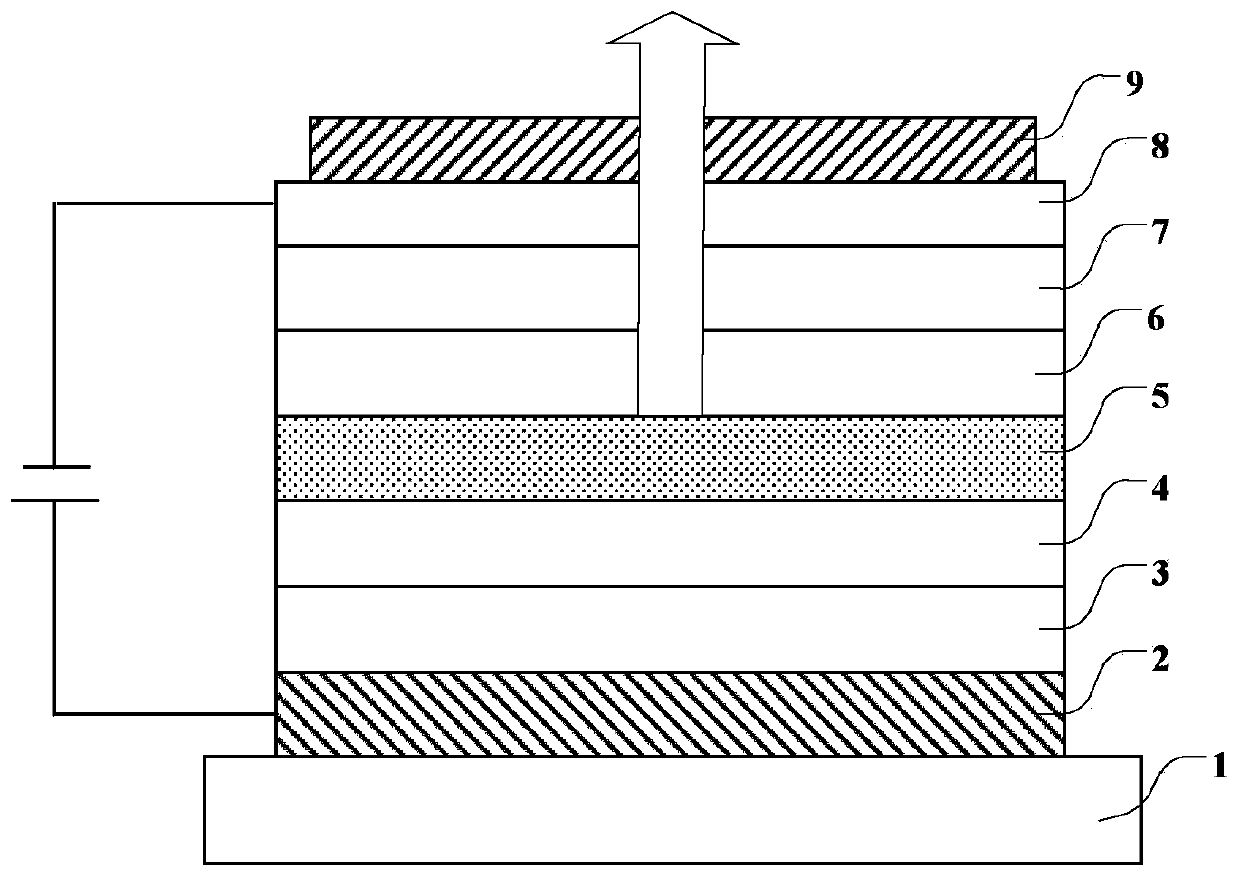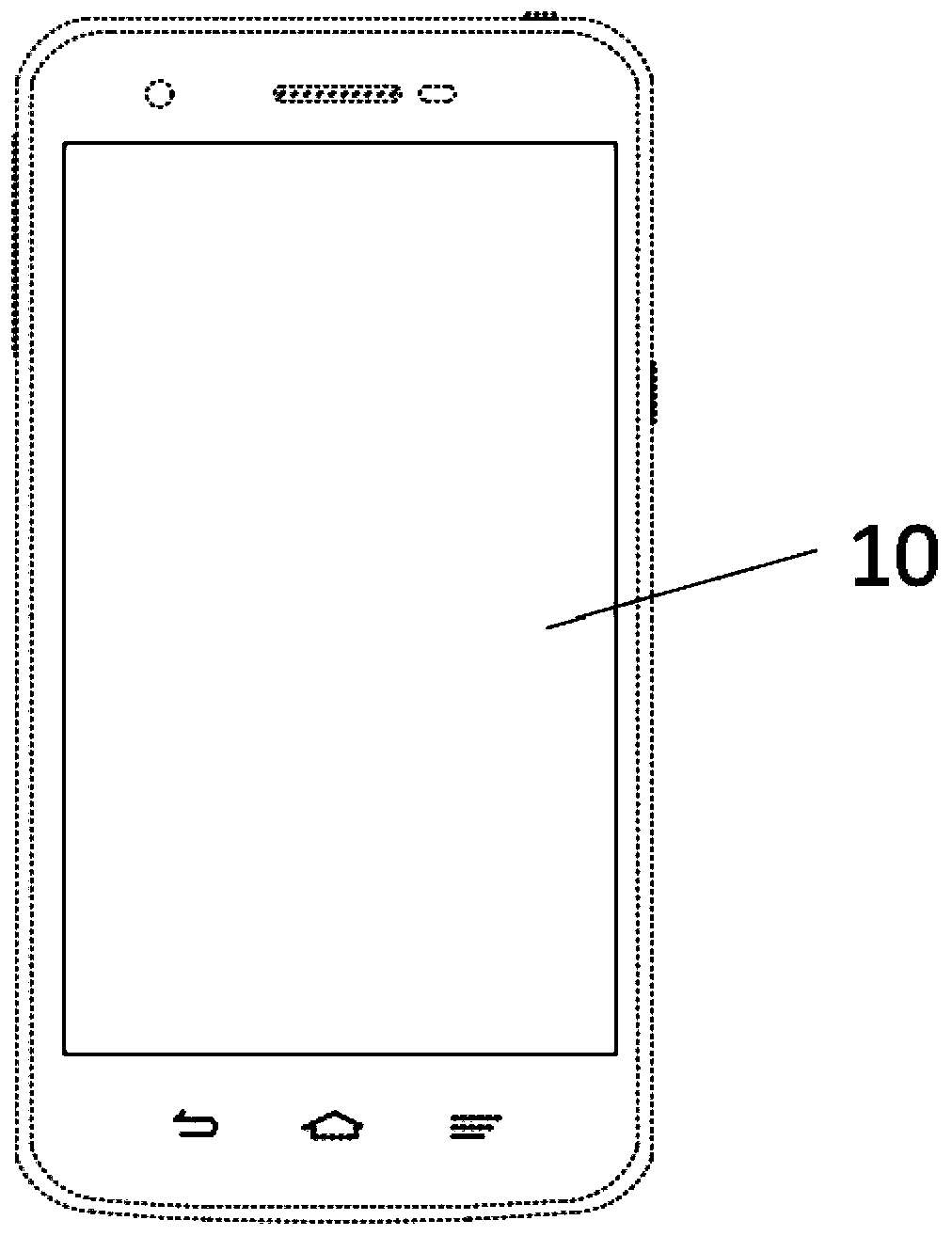Compound, organic photoelectric device and electronic equipment
A technology of organic optoelectronic devices and electronic equipment, applied in organic chemistry, circuits, electrical components, etc., can solve the problems of device electron and hole mobility imbalance, device efficiency and life reduction, electron transport performance reduction, etc., to achieve current Efficiency improvement, device lifetime improvement, and the effect of improving the ability of electron injection and transport
- Summary
- Abstract
- Description
- Claims
- Application Information
AI Technical Summary
Problems solved by technology
Method used
Image
Examples
preparation example 1
[0088] Synthesis of Preparation Example 1 Compound P1
[0089]
[0090] (1) In a 250mL round bottom flask, mix P1-1 (15mmol) and potassium acetate (40mmol) with dry 1,4-dioxane (60mL), Pd(PPh 3 ) 2 Cl 2 (0.4mmol) and pinacol diboronate (35mmol) were mixed, and stirred at 90° C. under a nitrogen atmosphere for 48 hours. The resulting intermediate was cooled to room temperature, added to water, and filtered through a pad of celite. The filtrate was extracted with dichloromethane, washed with water, and dried over anhydrous magnesium sulfate. After filtration and evaporation, the crude product was purified by silica gel column chromatography. The product yields intermediate P1-2.
[0091] (2) In a 250mL round bottom flask, P1-2 (10mmol), 2-chloro-4,6-diphenyl-1,3,5-triazine (25mmol) and Pd(PPh 3 ) 4 (0.3mmol) was added to a mixture of toluene (30mL) / ethanol (20mL) and potassium carbonate (12mmol) aqueous solution (10mL), and the reaction was refluxed under nitrogen atmosp...
preparation example 2
[0094] Synthesis of Preparation Example 2 Compound P2
[0095]
[0096] (1) In a 250mL round bottom flask, mix P2-1 (15mmol) and potassium acetate (20mmol) with dry 1,4-dioxane (60mL), Pd(PPh 3 ) 2 Cl 2 (0.4mmol) and pinacol diboronate (20mmol) were mixed, and stirred at 90°C under a nitrogen atmosphere for 48 hours. The resulting intermediate was cooled to room temperature, added to water, and filtered through a pad of celite. The filtrate was extracted with dichloromethane, washed with water, and dried over anhydrous magnesium sulfate. After filtration and evaporation, the crude product was purified by silica gel column chromatography. The product yielded intermediate P2-2.
[0097] (2) In a 250mL round bottom flask, P2-2 (10mmol), 2-chloro-4,6-diphenyl-1,3,5-triazine (15mmol) and Pd(PPh 3 ) 4 (0.3mmol) was added to a mixture of toluene (30mL) / ethanol (20mL) and potassium carbonate (12mmol) aqueous solution (10mL), and the reaction was refluxed under nitrogen atmosph...
preparation example 3
[0100] Synthesis of Preparation Example 3 Compound P7
[0101]
[0102] (1) In a 250mL round bottom flask, mix P7-1 (15mmol) and potassium acetate (40mmol) with dry 1,4-dioxane (60mL), Pd(PPh 3 ) 2 Cl 2 (0.4mmol) and pinacol diboronate (35mmol) were mixed, and stirred at 90° C. under a nitrogen atmosphere for 48 hours. The resulting intermediate was cooled to room temperature, added to water, and filtered through a pad of celite. The filtrate was extracted with dichloromethane, washed with water, and dried over anhydrous magnesium sulfate. After filtration and evaporation, the crude product was purified by silica gel column chromatography. The product yielded intermediate P7-2.
[0103] (2) In a 250mL round bottom flask, P7-2 (10mmol), 2-chloro-4,6-diphenyl-1,3,5-triazine (25mmol) and Pd(PPh 3 ) 4 (0.3mmol) was added to a mixture of toluene (30mL) / ethanol (20mL) and potassium carbonate (12mmol) aqueous solution (10mL), and the reaction was refluxed under nitrogen atmos...
PUM
| Property | Measurement | Unit |
|---|---|---|
| glass transition temperature | aaaaa | aaaaa |
Abstract
Description
Claims
Application Information
 Login to View More
Login to View More - R&D
- Intellectual Property
- Life Sciences
- Materials
- Tech Scout
- Unparalleled Data Quality
- Higher Quality Content
- 60% Fewer Hallucinations
Browse by: Latest US Patents, China's latest patents, Technical Efficacy Thesaurus, Application Domain, Technology Topic, Popular Technical Reports.
© 2025 PatSnap. All rights reserved.Legal|Privacy policy|Modern Slavery Act Transparency Statement|Sitemap|About US| Contact US: help@patsnap.com



